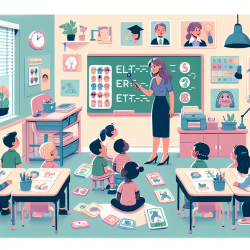As a practitioner in the field of speech-language pathology and special education, your goal is to empower individuals to overcome their challenges and achieve their fullest potential. One powerful tool that can aid in this mission is The Butt Non-Verbal Reasoning Test (BNVR), a norm-referenced test designed to assess problem-solving abilities in individuals with aphasia. This blog explores the insights from the 2004 research article and how you can leverage the BNVR to enhance your therapeutic practice.
Understanding the BNVR
The BNVR was developed by Pamela A. Butt and Romola S. Bucks to identify problem-solving difficulties in individuals with communication disorders. It consists of 10 colored photographs depicting everyday problems, each accompanied by four smaller images, one of which is the solution to the problem. The test aims to determine if problem-solving difficulties exist, explain why a patient may not be initiating communication, and assist the rehabilitation team in clinical decision-making.
Implementing the BNVR in Your Practice
Incorporating the BNVR into your assessment protocol can offer several benefits:
- Efficiency: The BNVR is a brief test that can be administered in less than 15 minutes, making it suitable for quick assessments.
- Face Validity: The high-quality photographs represent simple problem situations, increasing the likelihood of patients being familiar with the contexts.
- Minimal Verbal Instructions: The test reduces demands on potentially impaired linguistic comprehension abilities, making it accessible to individuals with aphasia.
- Norm-Referenced: The test is standardized with persons who have aphasia due to stroke, providing reliable benchmarks for assessment.
Practical Applications
The BNVR can be particularly useful in several therapeutic scenarios:
- Initial Assessment: Quickly determine the presence of problem-solving difficulties in new patients.
- Rehabilitation Planning: Use the insights from the BNVR to tailor rehabilitation strategies and interventions.
- Progress Monitoring: Regularly administer the BNVR to track improvements in problem-solving abilities over time.
Encouraging Further Research
While the BNVR is a valuable tool, it is essential to continue exploring and researching additional methods to assess and enhance cognitive abilities in individuals with aphasia. Higher-level problem-solving and reasoning capacities often require more complex assessments, and staying updated with the latest research can help you provide the best care possible.
To read the original research paper, please follow this link: The Butt Non-Verbal Reasoning Test (2004)










